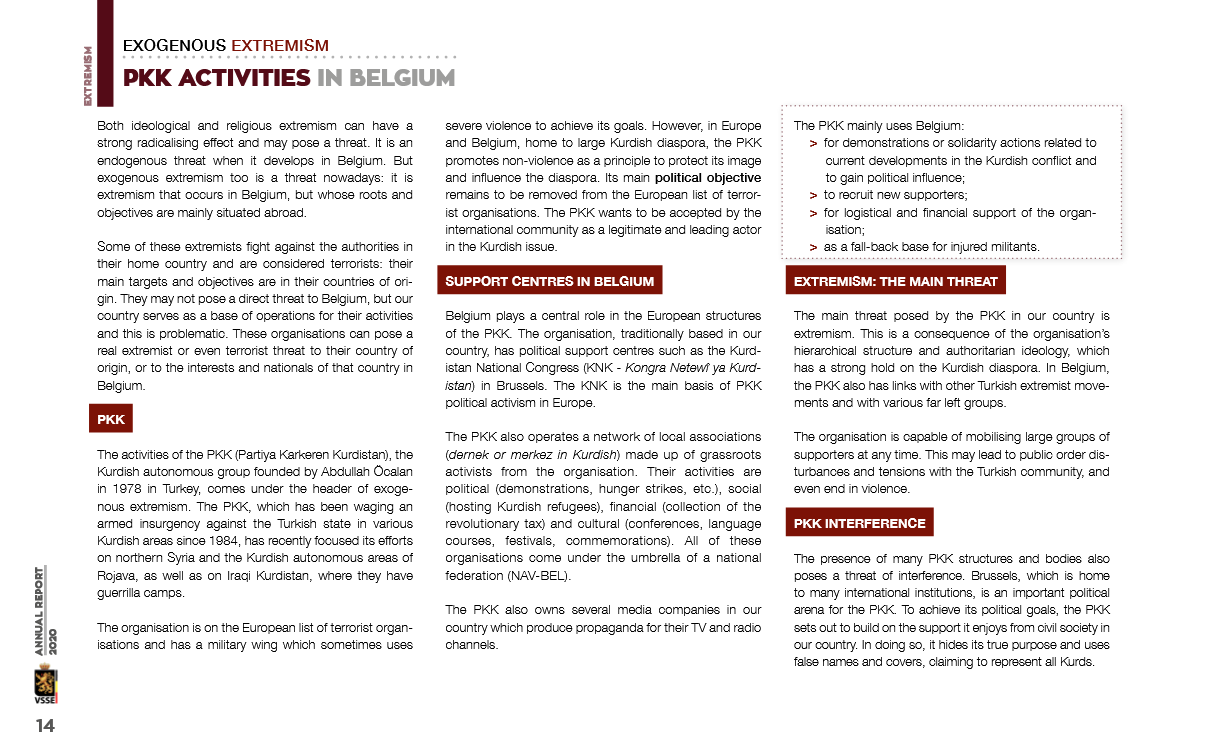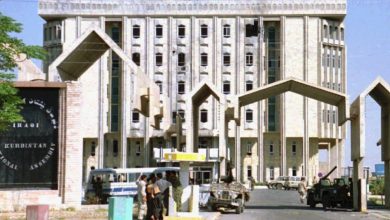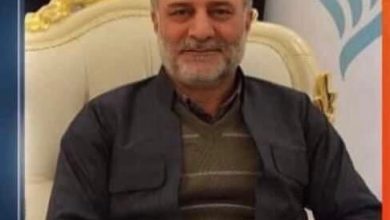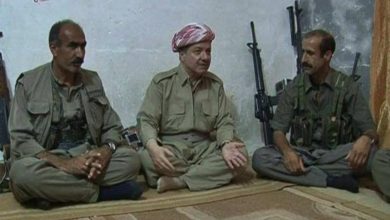The Belgian intelligence agency (VSSE) reveals how PKK uses Belgium as a centre in Europe in its annual report. The following text is the part of the report which mentions the PKK and the threats a PKK presence in Belgium pose.
PKK ACTIVITIES IN BELGIUM
Both ideological and religious extremism can have a strong radicalising effect and may pose a threat. It is anendogenous threat when it develops in Belgium. But exogenous extremism too is a threat nowadays: it is extremism that occurs in Belgium, but whose roots and objectives are mainly situated abroad. Some of these extremists fight against the authorities in their home country and are considered terrorists: their main targets and objectives are in their countries of origin. They may not pose a direct threat to Belgium, but our country serves as a base of operations for their activities and this is problematic. These organisations can pose a real extremist or even terrorist threat to their country of origin, or to the interests and nationals of that country in
Belgium.
PKK
The activities of the PKK (Partiya Karkeren Kurdistan), the Kurdish autonomous group founded by Abdullah Öcalan in 1978 in Turkey, comes under the header of exogenous extremism. The PKK, which has been waging an armed insurgency against the Turkish state in various Kurdish areas since 1984, has recently focused its efforts on northern Syria and the Kurdish autonomous areas of Rojava, as well as on Iraqi Kurdistan, where they have guerrilla camps. The organisation is on the European list of terrorist organ-
isations and has a military wing which sometimes uses severe violence to achieve its goals.
However, in Europe and Belgium, home to large Kurdish diaspora, the PKK promotes non-violence as a principle to protect its image and influence the diaspora. Its main political objective remains to be removed from the European list of terrorist organisations. The PKK wants to be accepted by the international community as a legitimate and leading actor in the Kurdish issue.
SUPPORT CENTRES IN BELGIUM
Belgium plays a central role in the European structures of the PKK. The organisation, traditionally based in our country, has political support centres such as the Kurdistan National Congress (KNK – Kongra Netewî ya Kurdistan) in Brussels. The KNK is the main basis of PKK political activism in Europe. The PKK also operates a network of local associations (dernek or merkez in Kurdish) made up of grassroots activists from the organisation. Their activities are political (demonstrations, hunger strikes, etc.), social
(hosting Kurdish refugees), financial (collection of the revolutionary tax) and cultural (conferences, language courses, festivals, commemorations). All of these organisations come under the umbrella of a national federation (NAV-BEL).
The PKK also owns several media companies in our country which produce propaganda for their TV and radio channels.
The PKK mainly uses Belgium:
> for demonstrations or solidarity actions related to current developments in the Kurdish conflict and to gain political influence;
> to recruit new supporters;
> for logistical and financial support of the organisation;
> as a fall-back base for injured militants.
EXTREMISM: THE MAIN THREAT
The main threat posed by the PKK in our country is extremism. This is a consequence of the organisation’s hierarchical structure and authoritarian ideology, which has a strong hold on the Kurdish diaspora. In Belgium,the PKK also has links with other Turkish extremist movements and with various far left groups.
The organisation is capable of mobilising large groups of supporters at any time. This may lead to public order disturbances and tensions with the Turkish community, and even end in violence.
PKK INTERFERENCE
The presence of many PKK structures and bodies also poses a threat of interference. Brussels, which is home to many international institutions, is an important political arena for the PKK. To achieve its political goals, the PKK sets out to build on the support it enjoys from civil society in our country. In doing so, it hides its true purpose and uses false names and covers, claiming to represent all Kurds.

Source: https://vsse.be/sites/default/files/1-ra2020-ukt-l-single.pdf





